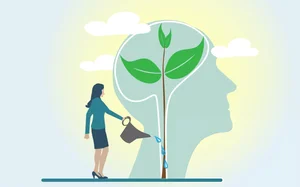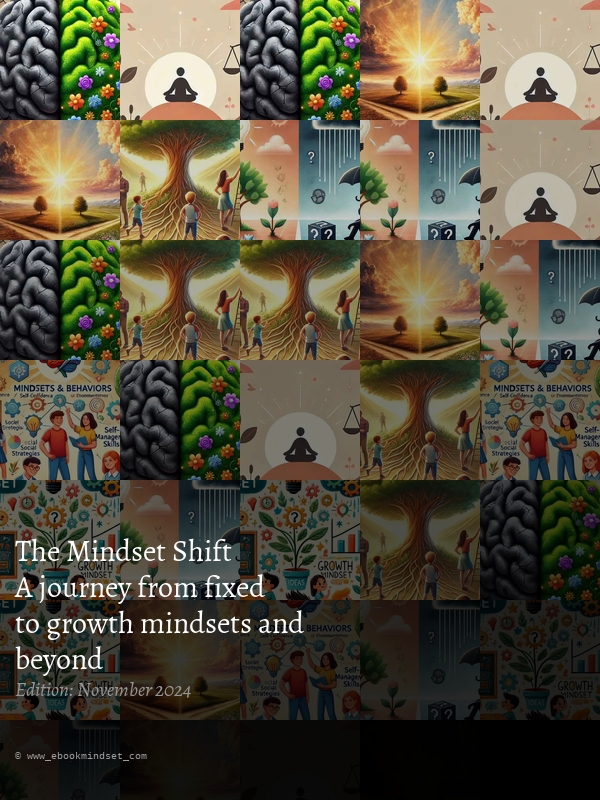Leadership Mindsets: A Comprehensive Guide
In today's dynamic and ever-evolving business landscape, effective leadership is paramount. Leaders are no longer simply managers; they are inspirers, innovators, and adaptable strategists, capable of navigating complex challenges and driving organizational success. A critical component of effective leadership lies in the leader's mindset. This comprehensive guide delves into the concept of leadership mindsets, exploring various types, their profound impact on organizational success, and practical strategies for cultivating these essential attributes.
What Are Leadership Mindsets?
Leadership mindsets represent the foundational beliefs and attitudes that shape a leader's thinking, actions, and interactions within their teams. These deeply ingrained perspectives significantly influence decision-making, problem-solving approaches, and overall leadership effectiveness. A leader's mindset profoundly impacts organizational culture, employee engagement, team cohesion, and ultimately, the organization's performance and trajectory. Understanding and developing a strong leadership mindset is therefore crucial for achieving sustained success.
The Importance of Leadership Mindsets
Influence on Decision-Making
A leader's mindset directly impacts their approach to decision-making. Leaders with a growth mindset readily embrace challenges, viewing setbacks not as failures but as valuable learning opportunities. They are more likely to explore innovative solutions and take calculated risks, fostering a culture of continuous improvement. In contrast, leaders with a fixed mindset may exhibit risk aversion, resist change, and shy away from potentially disruptive yet beneficial strategies. This can stifle innovation and limit the organization's ability to adapt to evolving market demands. The impact on decision quality and organizational agility is considerable.
Impact on Team Dynamics
A leader's mindset establishes the foundation for the team's culture and dynamics. Leaders who cultivate an inclusive mindset prioritize diversity, actively solicit input from all team members, and create a psychologically safe environment. This fosters open communication, collaboration, and a sense of shared purpose. Team members feel valued, empowered, and motivated to contribute their unique perspectives and expertise. Conversely, a leader with a less inclusive mindset may create an environment of exclusion and stifle creativity, leading to decreased team morale and productivity. The impact on team cohesion and performance is directly linked to the leader's approach to inclusivity.
Adaptability and Resilience
In today's volatile and unpredictable business world, adaptability is no longer a desirable trait but a critical necessity. Leaders with an agile mindset thrive in dynamic environments. They embrace ambiguity, demonstrate flexibility in their approach, and are capable of making swift, informed decisions even with incomplete information. This capacity for rapid response and adaptation allows organizations to navigate unforeseen challenges, capitalize on emerging opportunities, and maintain a competitive edge. In contrast, leaders lacking an agile mindset may struggle to adapt to change, leading to missed opportunities and potentially damaging consequences.
Driving Long-Term Success
Leaders with a forward-thinking mindset possess a long-term perspective, effectively aligning team efforts with overarching organizational goals. They anticipate future trends, proactively address potential challenges, and cultivate a vision that inspires and motivates their teams. This strategic foresight is essential for driving sustainable growth and ensuring the organization's long-term success and competitiveness in the marketplace. Leaders lacking this foresight may focus on short-term gains, overlooking crucial long-term considerations that could hinder future progress.
Types of Leadership Mindsets
Several key leadership mindsets contribute to effective leadership. While not mutually exclusive, understanding their nuances can significantly enhance leadership effectiveness.
Growth Mindset
A growth mindset is characterized by the belief that abilities and intelligence are not fixed but rather malleable and capable of development through dedication and hard work. Leaders with a growth mindset embrace challenges, view failures as opportunities for learning, and actively seek feedback to improve their skills and performance. They promote a culture of continuous learning within their teams, fostering innovation and resilience.
- Encourages continuous learning and development.
- Promotes resilience in the face of setbacks and challenges.
- Fosters innovation and creativity through experimentation.
- Enhances adaptability to changing circumstances.
Inclusive Mindset
An inclusive mindset prioritizes diversity, equity, and inclusion. Leaders with this mindset actively seek diverse perspectives, create a psychologically safe environment where everyone feels comfortable sharing their ideas, and ensure that all team members feel valued and respected. This inclusive approach fosters creativity, innovation, and strong team cohesion.
- Enhances creativity and innovation through diverse perspectives.
- Builds trust and strengthens relationships among team members.
- Improves team morale, engagement, and overall performance.
- Promotes a sense of belonging and psychological safety.
Agile Mindset
An agile mindset is essential for navigating today's rapidly changing business environment. Leaders with an agile mindset are comfortable with ambiguity, readily adapt to unexpected changes, and embrace iterative processes. They foster a culture of experimentation and continuous improvement, enabling their organizations to respond quickly and effectively to evolving market demands.
- Facilitates rapid response to changing market conditions and customer needs.
- Encourages experimentation and learning from both successes and failures.
- Supports innovation through iterative development and continuous improvement.
- Increases organizational flexibility and resilience.
Enterprise Mindset
An enterprise mindset focuses on aligning individual contributions with broader organizational goals. Leaders with an enterprise mindset prioritize the collective success of the organization over individual achievements, promoting collaboration and a shared sense of purpose across departments and teams. This approach strengthens organizational alignment and fosters a culture of accountability.
- Strengthens alignment between team efforts and overall company objectives.
- Enhances accountability and responsibility among team members.
- Encourages collaboration and knowledge sharing across departments.
- Promotes a shared sense of purpose and collective responsibility.
Five Leadership Mindsets for Future-Fit Leaders (According to EY)
EY, a leading global professional services firm, identifies five crucial leadership mindsets for leaders who thrive in the future of work:
- Ruthlessly Caring: This mindset involves balancing empathy and understanding with accountability and high expectations. Leaders demonstrate genuine care for their teams while maintaining a firm commitment to achieving results.
- Confidently Humble: This combines self-assurance and a willingness to acknowledge limitations. Leaders are confident in their abilities while remaining open to learning and seeking feedback.
- Politically Virtuous: This emphasizes navigating organizational politics ethically and transparently, building trust and fostering collaboration rather than engaging in manipulative tactics.
- Ambitiously Appreciative: This mindset combines a strong drive for success with a genuine appreciation for achievements and contributions. Leaders celebrate successes while maintaining a focus on continuous improvement.
- Responsibly Daring: This involves taking calculated risks and embracing innovation while carefully considering potential consequences. Leaders encourage experimentation and learning from both successes and failures.
Developing Leadership Mindsets
Developing strong leadership mindsets is an ongoing process of self-reflection, learning, and adaptation. It requires conscious effort and a commitment to personal growth.
- Self-Assessment: Regularly reflect on your beliefs, attitudes, and behaviors. Identify areas for improvement and develop strategies to address them.
- Seek Feedback: Actively solicit feedback from your team members, peers, and supervisors. Use this feedback to gain valuable insights into your strengths and weaknesses.
- Continuous Learning: Invest in ongoing professional development. Read books, attend workshops, and seek out mentors to expand your knowledge and skills.
- Embrace Challenges: View challenges as opportunities for growth and learning. Don't shy away from difficult situations; instead, embrace them as chances to develop your resilience and adaptability.
- Model Desired Behaviors: Demonstrate the mindsets you wish to cultivate in your team. Your actions will have a powerful influence on their beliefs and behaviors.
- Practice Mindfulness and Self-Reflection: Regularly engage in activities that promote self-awareness, such as meditation or journaling, to gain a deeper understanding of your own thinking patterns and emotional responses.
- Seek Mentorship and Coaching: Working with a mentor or coach can provide valuable guidance and support in developing leadership mindsets.
- Embrace Failure as a Learning Opportunity: Cultivate a growth mindset by viewing failures not as personal setbacks but as valuable learning experiences that contribute to future success.
- Foster a Culture of Psychological Safety: Create an environment where team members feel comfortable taking risks, expressing dissenting opinions, and sharing their ideas without fear of judgment or retribution.
- Promote Diversity and Inclusion: Actively seek out and value diverse perspectives, ensuring that all team members feel valued, respected, and empowered to contribute their unique talents.
Conclusion
Cultivating and developing strong leadership mindsets—such as growth, inclusive, agile, and enterprise mindsets, as well as those identified by EY—is essential for effective leadership in today's complex world. By embracing these mindsets, leaders can significantly enhance their effectiveness, inspire their teams, and drive organizational success. This leads to a thriving organizational culture that fosters innovation, resilience, and adaptability, ensuring long-term growth and competitiveness in a rapidly changing environment. The benefits extend beyond individual leaders to create a positive impact on the entire organization and its stakeholders.




